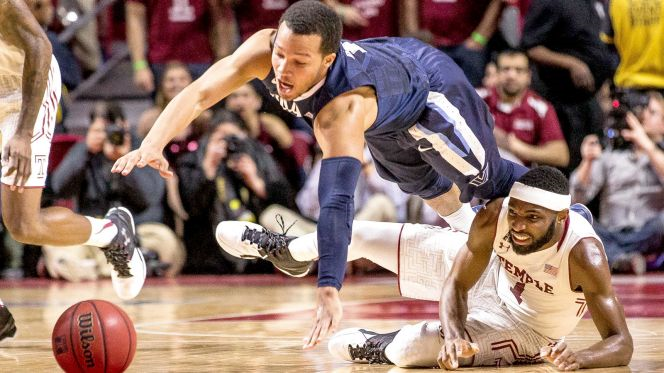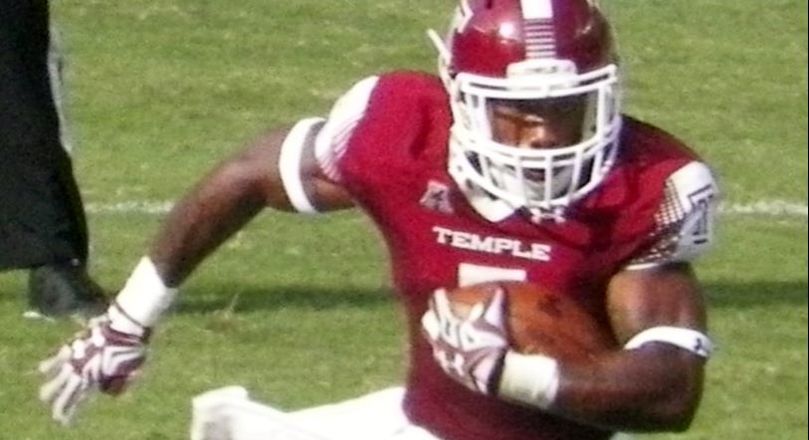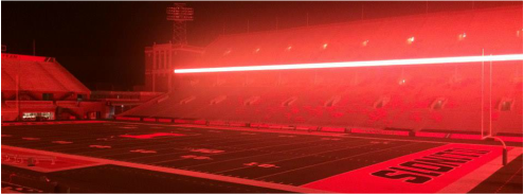The mere mention of his name sends the heebie-jeebies up and down my spine. It catches one’s eye, draws one’s attention, and then … and then what?
I mean, really, what’s the deal here? He is, or, rather, his story is … a non-story. It always has been. From the moment contrived and media-created uproar ensued over his announcement about being gay and how that would affect him being drafted and how that was determined to be why he fell in said draft (the St. Louis Rams took him in the seventh round in 2014) and why he didn’t latch on with an NFL team … it’s been a non-story.
So, too, is his Twitter-fueled statement Friday that he will “step away” from the game of football, albeit the CFL version. Oh, he won’t leave for good. That would mean his non-story really would experience what a non-story is and die. No, he’ll Kardashian this mother for all it is worth because he doesn’t ever want to give up his dream of playing professional ball … or some other PR-sounding BS explanation that drama queens (including the straight ones) use. That way his non-story remains alive for the non-thinking among us who really could use a daily reality check from this guy.
All the hoopla and hysteria and the now-now, furrowed-brow condemnations at those who didn’t lead the battle cry for gay rights at every corner was ridiculous. They were promotions of those, mostly, who had no idea about the former Missouri Tigers defensive lineman’s talent for playing a game at its highest level, whether it was good enough or not, but somehow convinced themselves that they were furthering a cause and tried to do the same with others.
Not for nothing, but what did Sam’s ability to play in the NFL or not have to do with gay rights, or even people’s perception of gays in general?
This may pain those who fell into the Sam trap, but the guy never made it in the NFL because he was not good enough. It had nothing – NOTHING – to do with him being gay. Keeping him on a roster would have been an injustice to him, because he would have been a veritable Sideshow Bob to whatever act was playing out on the field since he wasn’t lead-character material.
I saw Sam play in college. A lot. Aside from a 62-yard interception return as a freshman, he was a virtual non-entity his first three seasons at Mizzou. Ultimately, he became an undersized, overachieving sort who had a terrific statistical final season. But when you break down where those numbers came from – 9 of his 11.5 sacks came in three out of his 14 games – they’re not nearly as impressive. He wasn’t a player who jumped off the screen. Teams didn’t game-plan for him as two others (Kony Ealy and Shane Ray) on the same Missouri line were much more talented players and ultimately drafted higher.
Sam, for all the accolades he received for his final season in college, was not NFL material. He just wasn’t. He lacked the measurables, and while people get caught up in the height and weight stuff, that wasn’t necessarily his biggest issue. At 6-2, 261, he is not a small man by any stretch. But he wasn’t ideal for any spot because he lacked the speed and quickness and strength parameters that are, essentially, required for any position in the NFL.
He didn’t lack them by a little, either. There was a wide swath between what he would do in the weight room and what, say, a defensive back would … and it was the latter, not Sam, doing the heavy lifting. Heck, there are quarterbacks in the NFL who would bury him on the bench press.
Speed? Forget it. Running a 5.0 in the 40 qualified him for either line, and he was about 40 pounds of body weight shy there, and we already discussed the lifting deficiencies.
Yes, performance on the field matters. It gets a player noticed in the first place. But if that performance doesn’t mesh with the parameters required for, well, survival at the next level, then a player’s game may not translate to the NFL.
Sam’s never did.
- Jack Kerwin | [email protected]





 RSS Feed
RSS Feed

